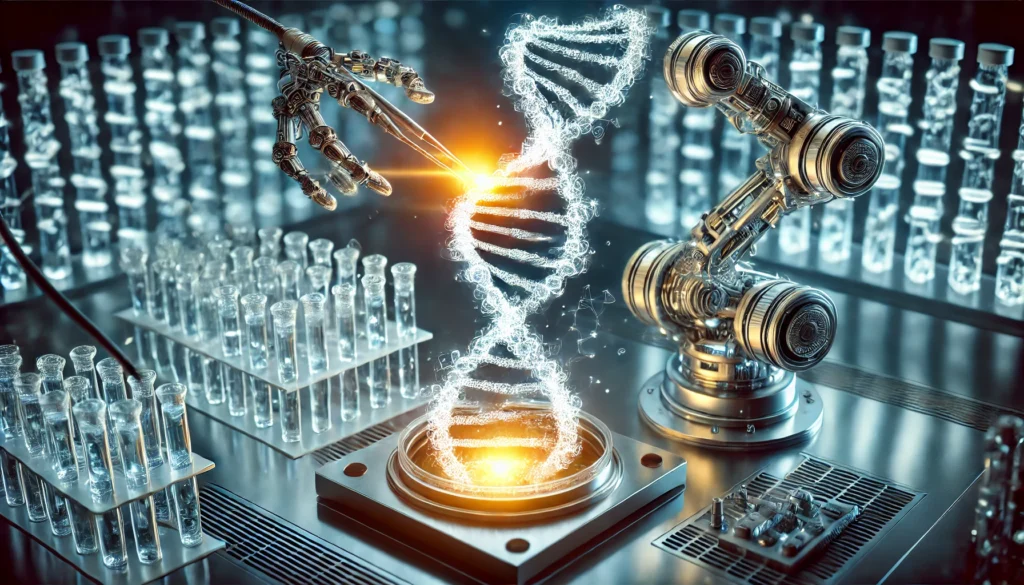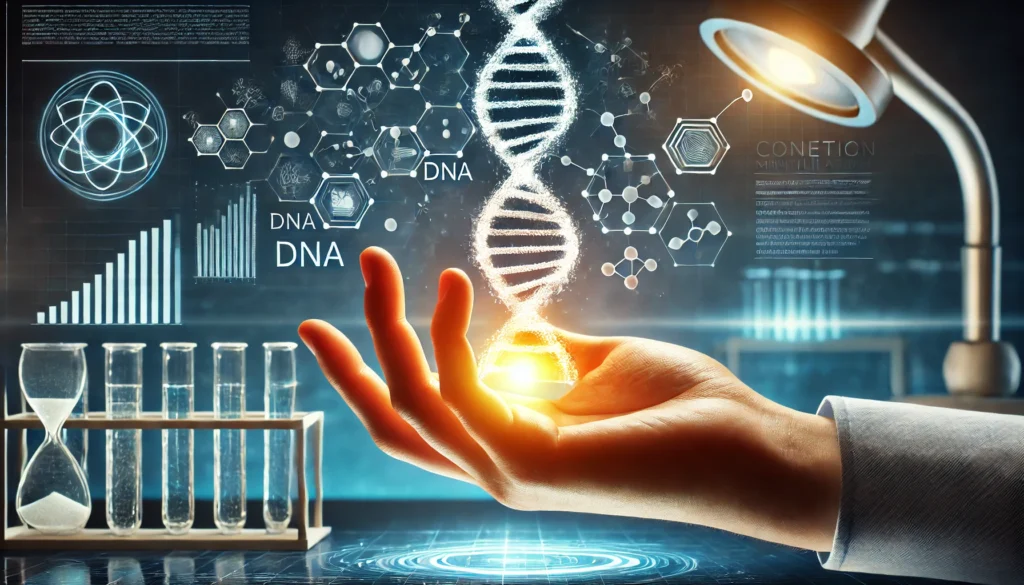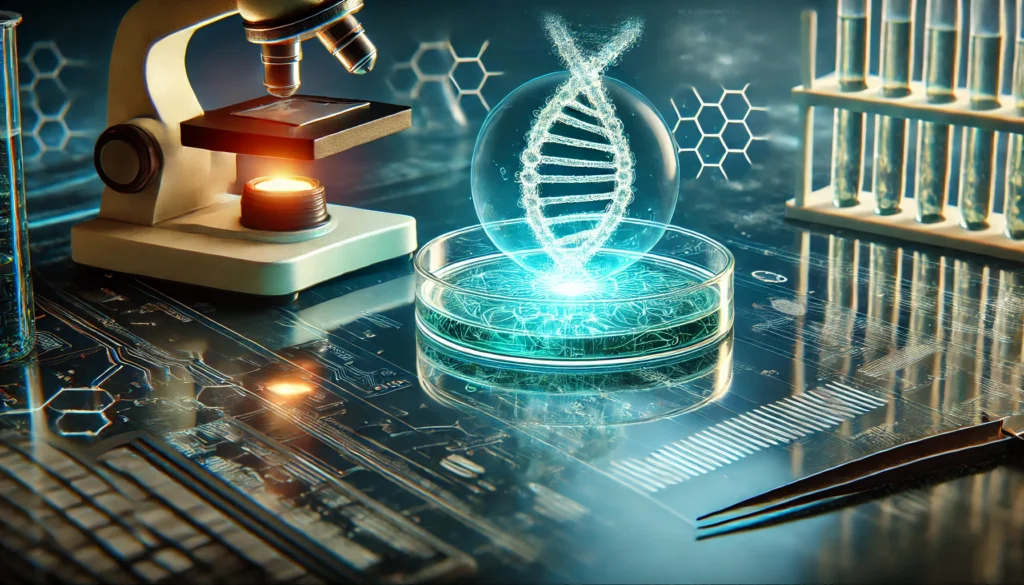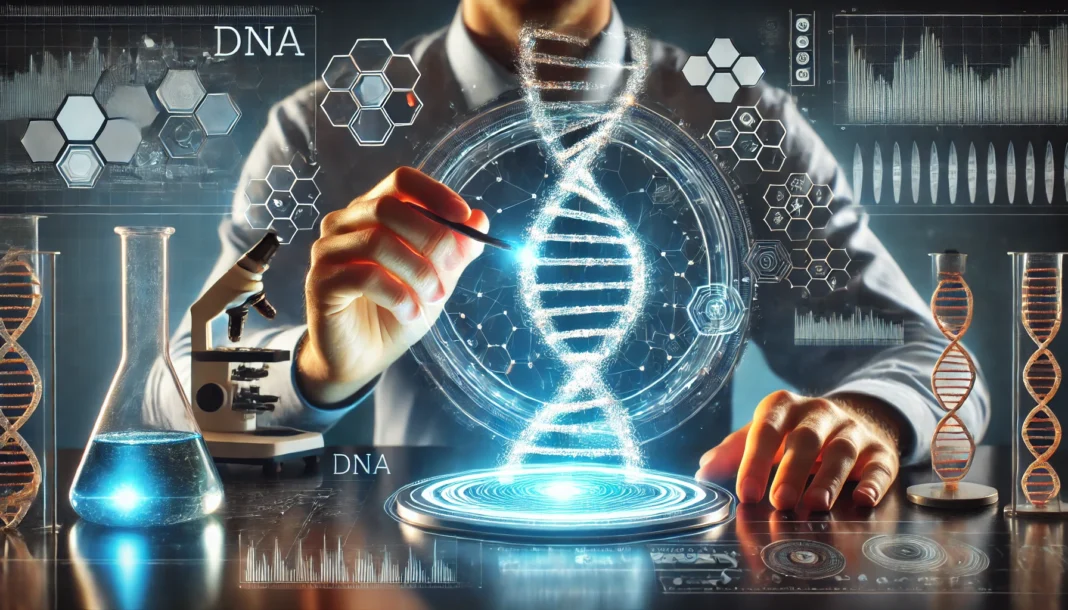Introduction
Genetic manipulation in humans represents one of the most profound scientific advancements of the modern era. Once relegated to the realm of science fiction, the ability to modify human DNA is now an evolving reality with the potential to eradicate genetic diseases, enhance physical and cognitive traits, and redefine the boundaries of human capabilities. Advances in gene-editing technologies such as CRISPR-Cas9 have accelerated the feasibility of genetic modification of humans, promising breakthroughs in medicine, biotechnology, and reproductive science. However, these advancements are not without ethical, social, and medical implications, raising critical questions about safety, accessibility, and moral responsibility. The exploration of genetically modified humans invites a necessary debate about the potential consequences of altering the genetic fabric of future generations. As society navigates the promises and perils of this technological revolution, it becomes crucial to examine the breakthroughs, risks, and ethical frontiers that define the future of genetic manipulation in humans.
You May Also Like: How Is Gene Therapy Helpful to Humans? Exploring Its Role in Treating Genetic Disorders and Beyond
The Science Behind Genetic Manipulation in Humans
Genetic manipulation of humans primarily involves the alteration of DNA sequences to modify inherited traits, correct genetic defects, or introduce desirable characteristics. The fundamental technologies that drive genetic modification of humans include CRISPR-Cas9, zinc finger nucleases (ZFNs), and transcription activator-like effector nucleases (TALENs). Of these, CRISPR-Cas9 has gained the most attention due to its precision, efficiency, and affordability. This gene-editing tool functions like molecular scissors, allowing scientists to target specific genetic sequences and modify or replace defective genes. Research in the field of gene therapy has made significant strides in correcting hereditary disorders such as sickle cell anemia, cystic fibrosis, and muscular dystrophy, demonstrating the transformative potential of genetically modified humans in clinical applications. However, the challenge remains in ensuring the accuracy and safety of gene edits to prevent unintended mutations and long-term health consequences.
Medical Breakthroughs and Therapeutic Applications
The genetic modification of humans has already begun to yield life-changing medical breakthroughs. In 2020, researchers successfully used CRISPR-based gene therapy to treat sickle cell disease and beta-thalassemia, two genetic blood disorders that had previously relied on lifelong management strategies. Similarly, genetic engineering has been explored in the treatment of inherited blindness, where scientists have successfully restored vision in patients with Leber congenital amaurosis using gene-editing techniques. Moreover, the potential of genetically modified humans extends to combating age-related diseases, with experimental therapies targeting genes linked to Alzheimer’s, cardiovascular diseases, and certain types of cancer. These developments suggest a future where genetic manipulation in humans could shift the paradigm from disease treatment to disease prevention, fundamentally altering the approach to healthcare.

The Ethical Debate: Designer Babies and Genetic Enhancement
While the medical applications of genetic modification of humans are widely accepted, the prospect of genetic enhancement raises significant ethical concerns. The concept of “designer babies”—where embryos are genetically edited for enhanced intelligence, athleticism, or aesthetic traits—has sparked debate over the potential consequences of genetic elitism and social inequality. Critics argue that genetically modified humans could exacerbate existing societal divides, giving rise to a new form of genetic discrimination where only those with access to advanced gene-editing technologies can afford superior traits. Furthermore, the long-term implications of genetic enhancement remain unknown, raising concerns about unintended consequences that could manifest in future generations. The debate extends to the question of parental autonomy versus the ethical responsibility to prevent genetic modifications that could introduce unforeseen risks to offspring.
Risks and Unintended Consequences
Despite its promising applications, genetic manipulation in humans carries significant risks. The primary concern is off-target effects, where unintended genetic modifications may result in harmful mutations or unforeseen health complications. Studies have shown that even precise gene-editing techniques like CRISPR-Cas9 can introduce errors that may disrupt normal cellular functions. Additionally, ethical concerns arise regarding the possibility of creating genetically modified humans without fully understanding the long-term consequences. Germline editing, which alters DNA in a way that is heritable across generations, presents particular risks, as any errors could propagate throughout a population over time. There is also the issue of regulatory oversight, as different countries maintain varying policies regarding the ethical and legal boundaries of human genetic modification. Ensuring robust safety protocols and transparent regulatory frameworks is critical in mitigating these risks and establishing responsible applications of genetic modification.
The Future of Genetic Manipulation: Regulation and Public Perception
As the genetic modification of humans advances, the need for comprehensive regulatory frameworks becomes increasingly important. International organizations such as the World Health Organization (WHO) and the National Institutes of Health (NIH) have called for global consensus on ethical guidelines and safety standards. Public perception plays a crucial role in shaping these policies, with concerns over “playing God” and the moral implications of genetic engineering influencing legislative decisions. Transparency, public education, and responsible scientific discourse are essential in fostering informed debates about the benefits and risks of genetically modified humans. As research continues to evolve, striking a balance between scientific innovation and ethical responsibility will be key in determining the trajectory of genetic manipulation in humans.

Frequently Asked Questions (FAQ) on Genetic Manipulation in Humans
1. What is the current state of genetic manipulation in humans?
Genetic manipulation in humans is advancing rapidly, with breakthroughs in gene-editing technologies such as CRISPR-Cas9 enabling precise modifications to DNA. Scientists have successfully used gene therapy to treat genetic disorders like sickle cell anemia and beta-thalassemia, demonstrating the clinical potential of these advancements. However, the application of genetic modification of humans remains limited by ethical considerations, regulatory restrictions, and concerns about long-term effects. Research is ongoing to refine techniques, improve safety, and explore applications beyond disease treatment, such as enhancing resistance to viruses or slowing aging. As the field progresses, addressing public concerns and regulatory challenges will be crucial to shaping the future of genetically modified humans.
2. How does genetic modification of humans differ from traditional gene therapy?
Traditional gene therapy typically involves introducing or repairing genes to treat genetic disorders without altering the germline, meaning the changes are not inherited by future generations. In contrast, genetic modification of humans, especially germline editing, involves directly modifying the DNA in sperm, eggs, or embryos, leading to heritable changes. While somatic gene therapy is widely accepted for treating diseases, germline modifications remain controversial due to ethical and safety concerns. The potential to create genetically modified humans with enhanced traits or resistance to diseases has sparked debate over its implications for society. Regulatory bodies continue to evaluate the risks and benefits of both approaches to ensure ethical and responsible application.
3. What are some unexpected risks associated with genetic manipulation in humans?
Beyond known risks such as unintended mutations and off-target effects, genetic manipulation in humans carries unexpected dangers that are not yet fully understood. One concern is the potential disruption of complex genetic interactions, leading to unforeseen health issues in future generations. Additionally, altering specific genes could have unintended consequences, such as increasing susceptibility to certain diseases while reducing the risk of others. Genetic modification of humans could also introduce epigenetic changes, affecting gene expression in ways that scientists do not yet fully grasp. Ensuring long-term studies and cautious implementation will be critical in mitigating these unpredictable risks associated with genetically modified humans.
4. Could genetic modification of humans influence human evolution?
Yes, genetic modification of humans has the potential to alter the course of human evolution by enabling the selection and transmission of specific traits. If germline modifications become widespread, they could create permanent genetic changes that shape future generations, potentially leading to the emergence of new human subpopulations with enhanced abilities or disease resistance. However, evolution is a complex and unpredictable process influenced by both genetic and environmental factors. Introducing genetic changes without understanding their long-term impact could result in unintended consequences, such as reduced genetic diversity or increased vulnerability to certain environmental pressures. Scientists must carefully assess the ethical and biological implications before pursuing large-scale genetic modification of humans.
5. What are the potential societal consequences of genetically modified humans?
The societal impact of genetically modified humans extends beyond medicine, raising concerns about inequality, accessibility, and genetic discrimination. If genetic enhancement becomes commercially available, it could widen socioeconomic gaps, where only the wealthy can afford superior genetic traits. This scenario could lead to genetic stratification, where individuals with enhanced capabilities have an unfair advantage in education, employment, and social mobility. Ethical dilemmas also arise regarding parental rights in selecting their children’s genetic traits, potentially reshaping cultural norms and expectations. To prevent genetic disparities, governments and regulatory bodies must ensure fair access and ethical guidelines surrounding genetic modification in humans.
6. Are there non-medical applications for genetic manipulation in humans?
While medical applications remain the primary focus, genetic manipulation in humans has potential non-medical applications, such as cognitive enhancement, athletic performance optimization, and lifespan extension. Researchers are exploring the possibility of modifying genes associated with intelligence, memory retention, and problem-solving skills. Similarly, genetic engineering could enhance muscle mass, endurance, and resistance to physical injuries, revolutionizing sports and physical performance. There is also growing interest in using genetic modification of humans to slow the aging process by targeting genes linked to longevity and cellular repair. However, ethical considerations regarding enhancement versus treatment continue to shape discussions on the acceptability of non-medical genetic modifications.
7. How do religious and cultural perspectives influence the acceptance of genetic modification of humans?
Religious and cultural beliefs play a significant role in shaping public perceptions of genetic modification of humans. Some religious groups view genetic manipulation as interference with natural creation or divine will, raising moral objections to altering human DNA. Others argue that using gene-editing technologies to alleviate suffering aligns with humanitarian and ethical principles. Cultural attitudes toward genetic engineering also vary, with some societies embracing scientific advancements while others remain skeptical due to historical concerns about eugenics and genetic experimentation. Understanding and respecting diverse perspectives is crucial in fostering ethical discussions and regulatory decisions about genetically modified humans.
8. What role do governments and international organizations play in regulating genetic manipulation in humans?
Governments and international organizations play a crucial role in setting ethical and safety standards for genetic modification of humans. The World Health Organization (WHO), the National Institutes of Health (NIH), and the International Summit on Human Genome Editing are among the key bodies overseeing gene-editing regulations. Different countries have adopted varying approaches, with some imposing strict bans on germline editing while others permit limited research under regulatory oversight. Establishing global consensus on ethical guidelines is essential to prevent unethical practices and ensure the responsible development of genetically modified humans. Ongoing dialogue between scientists, policymakers, and the public will help shape future regulations in this rapidly evolving field.
9. How can genetic modification of humans address challenges in space exploration?
Genetic modification of humans could play a pivotal role in preparing astronauts for long-term space missions by enhancing resistance to radiation, muscle degeneration, and other health risks associated with space travel. Scientists are investigating ways to modify genes linked to DNA repair mechanisms, potentially reducing radiation-induced damage during prolonged space exposure. Additionally, altering genes associated with bone density and muscle preservation could help counteract the adverse effects of microgravity. Genetic engineering might also enable adaptation to extreme environments, such as Mars, by enhancing physiological resilience to low oxygen levels and extreme temperatures. While these possibilities are still in early research stages, genetically modified humans could significantly improve the feasibility of deep-space colonization.
10. What ethical considerations should be prioritized before advancing genetic manipulation in humans?
Before advancing genetic manipulation in humans, ethical considerations such as informed consent, safety, and societal impact must be prioritized. Transparency in research and clinical trials is essential to ensure that individuals undergoing genetic modifications fully understand the risks and benefits. Safeguarding against potential exploitation and genetic discrimination is crucial to preventing a future where genetically modified humans face social stigma or legal challenges. Ethical oversight should also address the balance between therapeutic applications and enhancement, ensuring that genetic modification serves humanity’s well-being rather than exacerbating inequality. As technology progresses, maintaining ethical integrity will be vital in shaping a responsible and equitable future for genetic modification of humans.

Conclusion: Embracing Innovation with Ethical Caution
The future of genetic manipulation in humans holds immense promise, with the potential to eradicate hereditary diseases, enhance human capabilities, and redefine medical treatments. However, the ethical and societal implications of genetically modified humans necessitate careful consideration and regulatory oversight. While the breakthroughs in gene editing signal a new era of medical innovation, ensuring responsible scientific practice, equitable access, and rigorous safety protocols will be critical in harnessing the benefits of genetic modification while mitigating its risks. As humanity stands at the precipice of this genetic revolution, embracing innovation with ethical caution will be essential in shaping a future where genetic manipulation serves the collective good without compromising moral and societal values.
human gene editing, gene therapy advancements, CRISPR technology in medicine, ethical concerns in biotechnology, future of genetic engineering, personalized medicine breakthroughs, genome sequencing innovations, hereditary disease prevention, bioethics and genetics, DNA modification science, emerging trends in genomics, gene therapy for rare diseases, medical applications of CRISPR, human DNA alterations, genetic research ethics, biomedical innovation, designer baby controversy, gene editing safety concerns, impact of biotechnology on society, regenerative medicine and genetics
Further Reading:
Genetic modification and genetic determinism
What are the Ethical Concerns of Genome Editing?
Risks and benefits of human germline genome editing: An ethical analysis


